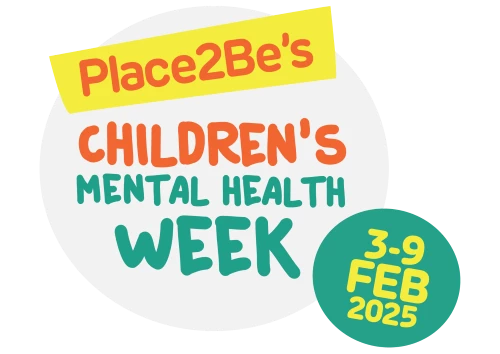Children’s Mental Health Week blog: Food & Mood
Children’s Mental Health Week ( 3rd-9th February 2025) is a great time to reflect on how we look after ourselves – and the food choices we make can play a huge part. The food we eat doesn’t just fuel our bodies, it also has a big impact on our minds. Ever noticed how you feel sluggish after too much junk food or how skipping meals makes you irritable? That’s because what we eat can affect our energy levels, concentration, and even our mood.

- Eat Regularly to Keep Your Mood Steady
When you go too long without eating, your blood sugar drops, which can make you feel tired, grumpy, or unable to focus. Try to eat balanced meals at regular times, and if you need a snack, go for something that will give you long-lasting energy—like fruit, nuts, yoghurt, or wholegrain crackers.
- Choose Foods That Boost Your Brain
Some foods help your brain work at its best. Try to include:
🍌 Bananas and wholegrains – for slow-releasing energy
🥜 Nuts and seeds – packed with healthy fats for brain power
🐟 Oily fish (like salmon or tuna) – full of omega-3, which supports brain health
🍓 Berries and vegetables – rich in vitamins to help protect your mind and body
Eating a mix of these foods can help you feel more focused and balanced throughout the day.
- Stay Hydrated
Not drinking enough water can leave you feeling sluggish, dizzy, or struggling to concentrate. Try to drink plenty of water throughout the day. Herbal teas and diluted fruit juice are also good options.
- Share Your Feelings
Talking can make a big difference. If you have a trusted person in your life—a parent, an older friend, a youth worker, or a teacher—try to get into the habit of sharing how you feel. It doesn’t have to be a big conversation, just small moments of connection. Whether you’re struggling or simply want to talk about your day, speaking openly can help lighten the load and strengthen your relationships.
- Energy Drinks – Not So Great For Your Mind
Energy drinks might promise to give you a boost, but they often contain a lot of caffeine and sugar, which can lead to energy crashes, headaches, and trouble sleeping. They can also make you feel jittery or anxious. If you need an energy boost, try water, a smoothie, or a snack with protein and healthy fats instead.
- Enjoy Fast Food – But In Balance
There’s nothing wrong with enjoying a takeaway or a burger now and then, but eating too much fast food can leave you feeling sluggish and low on energy. Try to balance it out with home-cooked meals, fresh ingredients, and colourful fruit and veg. If you’re eating out, simple swaps—like adding a side of vegetables or choosing grilled instead of fried—can make a difference.
- Get Cooking
Cooking your own meals is a great way to learn about food and make healthier choices. You don’t need to be a top chef—simple meals like pasta with vegetables, homemade wraps, or smoothies can be easy and fun to make. Plus, cooking can be a great way to relax and get creative.
- Listen To Your Body
Everyone is different, and what works for one person might not work for another. Pay attention to how different foods make you feel—do certain meals give you more energy? Do others make you feel sluggish? Eating in a way that makes you feel good, inside and out, is the most important thing.
Eating well, staying hydrated, and spending time outside can all help boost your mental wellbeing. Why not take your lunch to Green Patch – our community garden in Kettering, Northamptonshire – and enjoy your food in the fresh air? Connecting with nature while eating can help you feel calmer and more mindful.
